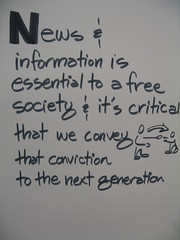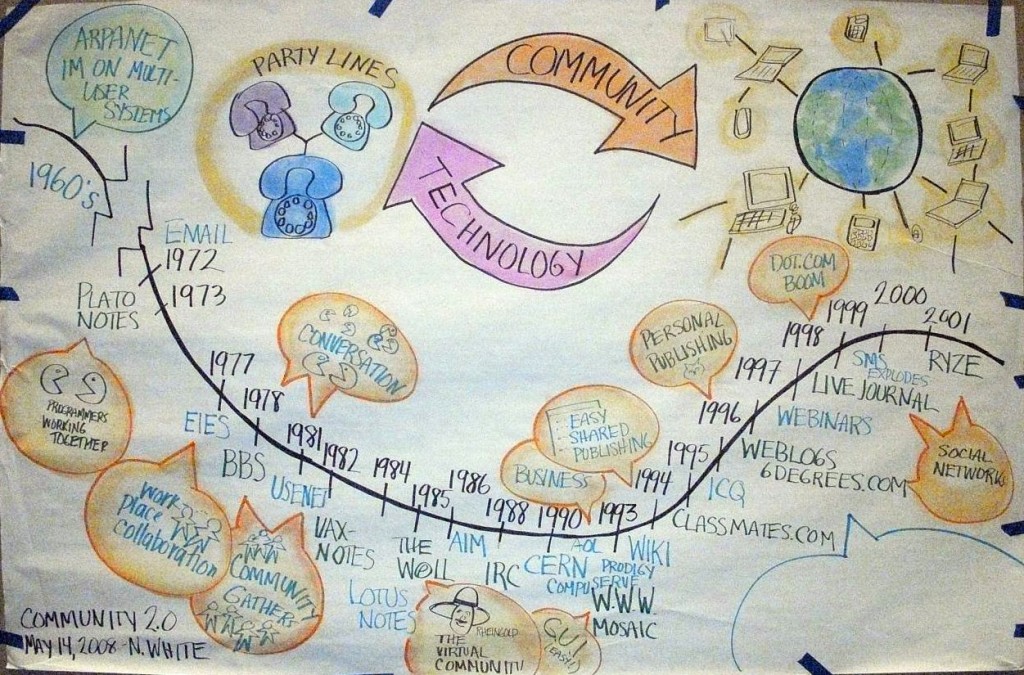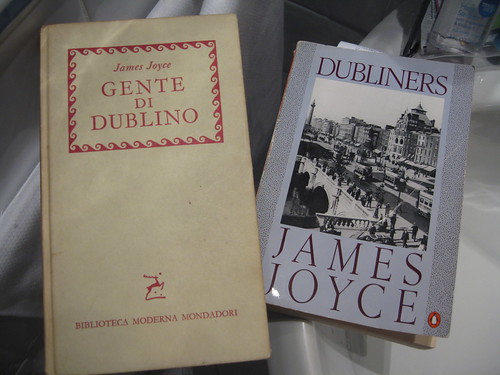 Earlier this month I attended the Journalism that Matters Pacific Northwest gathering here in Seattle. With the theme “Re-Imagining News and Community in the Northwest,” I was given the chance to stop, listen and reflect on journalism, my community and me. A chance to look at the news ecology.
Earlier this month I attended the Journalism that Matters Pacific Northwest gathering here in Seattle. With the theme “Re-Imagining News and Community in the Northwest,” I was given the chance to stop, listen and reflect on journalism, my community and me. A chance to look at the news ecology.
I am not a journalist. At most, this blog is simply a reporting of my thinking, my being, working and learning in the world. However, from 1981 – 1989 I worked for a news organization in a variety of roles, close to, but never as a journalist. That foray taught me a lot about broadcast journalism, both the highs and the lows. I started when broadcast journalism was still playing a central role in local civic participation. I left when it was plunging towards “news as a commodity to sell advertising.” From true dedication of broadcast time and resources to community issues, to selling public service announcements essentially as advertising with advertisers’ needs driving the decision making. It was bleak. At that moment, my disillusionment was profound. I think in many ways I turned my back on journalism because the “business” had, in my estimation, burned both me and my community. My eyes could not see the journalism in broadcast journalism. I returned to only reading the newspaper.
At the gathering, I had the chance to turn back again and face journalism, but with a different constellation of people who are part of and interested in journalism. This was the 14th Journalism that Matters gathering, an ongoing series of conversations that grapple with journalism in an entirely changed context than I knew it in the 1980’s. Best of all, they are filled with people who remind me of the best of what I saw early in my career.
The Open Space notes from the sessions can speak best to the range and outcomes of the conversations. They ranged from free thinking brainstorming to concrete action and next steps. I’m perhaps rather distant from the journalistic steps, but I can offer my reflections. So with that long preamble, here I go.
Bev Trayner, Josien Kapma and David Wilcox, people from my network, tweeted a question to me right at the start of the conference, asking about the role of social reporting in journalism. That elicited some Tweet based questions of “what is social reporting.” So already the meaning making had begun. For those who still want to know, according to David Wilcox, social reporting is “an emerging role, set of skills and philosophy around how to mix journalism, facilitation and social media to help people develop conversations and stories for collaboration.” (See the social reporting wiki for more.)
I suspect citizen journalism is a form of social reporting. For me the question is about transparency and how one chooses to be a social reporter. Is it as someone trying to objectively cover an event? Editorialize? Synthesize? Focus on particular outputs? Some of these transgress traditional journalist practices and perhaps even ethics. My conclusion is that social reporting sits on the continuum that includes journalism, but often moves outside of its bounds and becomes more subjective than objective. If that is what is needed, that’s useful. Ethically it suggests we should disclose our intentions and agendas as social reporters!
When I did not have enough background or experience to actively participate in conversations, I focused on …guess what… some social reporting, picking up comments that resonated for me and sent them out over Twitter. I think I disclosed that these were just snippets I appreciated. Hm, I had better go back and check! I blogged a couple of times (here and here), but I kept finding myself drawn back to the overall event Twitter stream and to the interactions to my Tweets both from my network and people outside of that network.
 I wondered what a summary of those Tweets would reveal. I have captured my tweets and, more interesting to me, the responses and retweets (RTs) from others. You can find them here –> JTMTwitterSummary if you are interested in look at them. I wish I had the time and attention to analyze them, but I don’t. My quick take aways are:
I wondered what a summary of those Tweets would reveal. I have captured my tweets and, more interesting to me, the responses and retweets (RTs) from others. You can find them here –> JTMTwitterSummary if you are interested in look at them. I wish I had the time and attention to analyze them, but I don’t. My quick take aways are:
- surprise at how many people found the snippets interesting enough to respond or retweet
- the large number of new followers I gained over that weekend — and I still wonder why they chose to follow me instead of simply following the #jtmpnw tag. I’ll leave that musing for others.
- My favorite tweet did get retweeted: RT @NancyWhite: Journalism can convene the conversations that help make meaning across the network. It doesn’t have to DEFINE them. #jtmpnw
Themes and Streams
Finally, there were a few themes that I connected with in the Sunday Open Space sessions around the role of games and fun in journalism, “slow news” and journalism and global health. From my perspective, both of these show us that journalism can play a very important role in a networked world that is, in many ways, different from an earlier hub and spoke role predicated on broadcasting and printing.
Games, Fun and Journalism
 Aka, “Spinach and Ice Cream,” this conversation started with some reflections about our beliefs about what news people “should” be consuming and what they “like” to consume. Wary of stereotypes, and wondering who makes these judgments, I kept quiet for a while. But I was deeply amused by the “spinach/ice cream dichotomy” offered. Hey, I like ’em both.
Aka, “Spinach and Ice Cream,” this conversation started with some reflections about our beliefs about what news people “should” be consuming and what they “like” to consume. Wary of stereotypes, and wondering who makes these judgments, I kept quiet for a while. But I was deeply amused by the “spinach/ice cream dichotomy” offered. Hey, I like ’em both.
More seriously, it is interesting to think about game theory and the aspects of games that engage us. Can they foster community engagement about “what matters?” There were some great tweets and the start of a conversation about this, but attention is fractured and scarce. The themes slip through my mind and my fingers and I let them go. But there is something here…
Slow News
Michele Ferriere caught many people’s imagination with the comparison of slow news to slow food. The localness. The savoring. This one comes down to a line from the Chinook Observer’s Cate Gable: “Slow news is like slow food — it takes a community.” I wonder if networks are more likely containers for fast news, and communities for slow. I have no idea. Something to chew on….
Global Health
Sanjay Bhatt, the session convenor, asked “how do we leverage Seattle know-how for entrepreneurial solutions to global basic needs?” My response was that journalism can help us convene the conversations that help make meaning across the network. It doesn’t have to DEFINE them. So the next step might be to visualize the network of people interested in global health news and began weaving the network by raising issues, convening conversations and reporting those conversations. I tweeted out many resource URLs from this session if you are interested.
Journalism and Networks
From these musings, my key take away was that journalism has a role in network weaving. So many of the networks emerge, they aren’t built per se. They are powerful if we are aware of them and use them. We can notice them. Amplify thing in them that have value. Dampen the things that don’t work.
In community activism, issues need both internal (private) facing spaces and external facing spaces. Journalism can weave across those external faces to see patterns of civic engagement and make them visible.
 In just over a week I’ll be in Ft. Worth, Texas, opening Monday’s session of the Elearning 2010 Conference. My topic is “Online Facilitation 13 Years On: What We Learned and What Do We Need to Learn?” Despite all best intentions, I’m just now getting concrete on what I want to do in this more traditional ‘podium’ opportunity. There are so many things we could talk about. So I’m wondering, what is YOUR history of online facilitation? What are the key turning points for you? And what do you see in the future?
In just over a week I’ll be in Ft. Worth, Texas, opening Monday’s session of the Elearning 2010 Conference. My topic is “Online Facilitation 13 Years On: What We Learned and What Do We Need to Learn?” Despite all best intentions, I’m just now getting concrete on what I want to do in this more traditional ‘podium’ opportunity. There are so many things we could talk about. So I’m wondering, what is YOUR history of online facilitation? What are the key turning points for you? And what do you see in the future? Dear Readers
Dear Readers Earlier this month I attended the
Earlier this month I attended the  I wondered what a summary of those Tweets would reveal. I have captured my tweets and, more interesting to me, the responses and retweets (RTs) from others. You can find them here –>
I wondered what a summary of those Tweets would reveal. I have captured my tweets and, more interesting to me, the responses and retweets (RTs) from others. You can find them here –>  Aka, “Spinach and Ice Cream,” this conversation started with some reflections about our beliefs about what news people “should” be consuming and what they “like” to consume. Wary of stereotypes, and wondering who makes these judgments, I kept quiet for a while. But I was deeply amused by the “spinach/ice cream dichotomy” offered. Hey, I like ’em both.
Aka, “Spinach and Ice Cream,” this conversation started with some reflections about our beliefs about what news people “should” be consuming and what they “like” to consume. Wary of stereotypes, and wondering who makes these judgments, I kept quiet for a while. But I was deeply amused by the “spinach/ice cream dichotomy” offered. Hey, I like ’em both. We are into day 3 of Journalism that Matters,
We are into day 3 of Journalism that Matters,  Yesterday through Sunday I’m at the
Yesterday through Sunday I’m at the